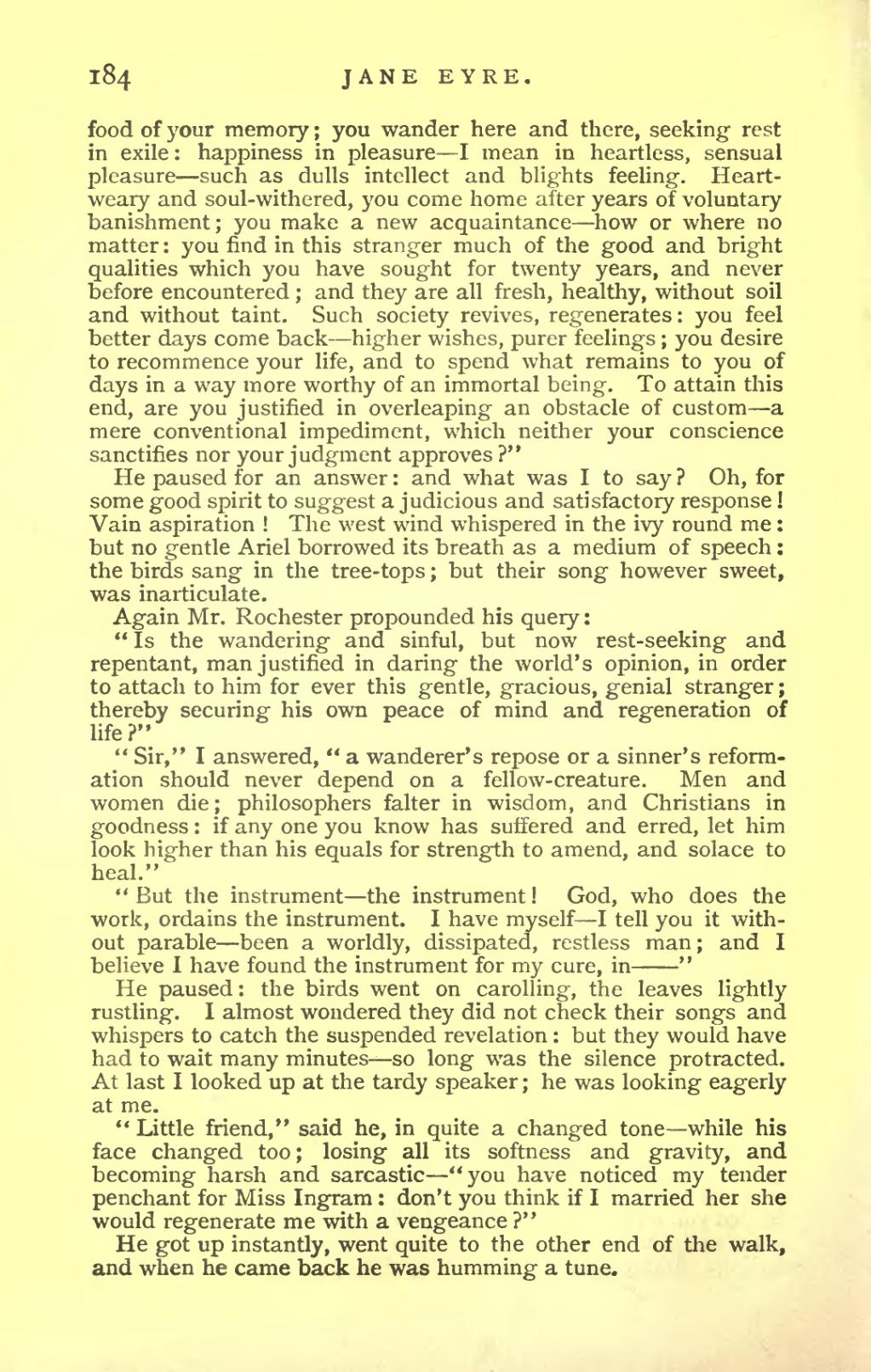food of your memory; you wander here and there, seeking rest in exile; happiness in pleasure—I mean in heartless, sensual pleasure—such as dulls intellect and blights feeling. Heart-weary and soul-withered, you come home after years of voluntary banishment; you make a new acquaintance—how or where no matter; you find in this stranger much of the good and bright qualities which you have sought for twenty years, and never before encountered; and they are all fresh, healthy, without soil and without taint. Such society revives, regenerates; you feel better days come back—higher wishes, purer feelings; you desire to recommence your life, and to spend what remains to you of days in a way more worthy of an immortal being. To attain this end, are you justified in overleaping an obstacle of custom—a mere conventional impediment which neither your conscience sanctifies nor your judgment approves?"
He paused for an answer; and what was I to say? Oh, for some good spirit to suggest a judicious and satisfactory response! Vain aspiration! The west wind whispered in the ivy round me; but no gentle Ariel borrowed its breath as a medium of speech; the birds sang in the tree-tops; but their song, however sweet, was inarticulate.
Again Mr. Rochester propounded his query:
"Is the wandering and sinful, but now rest-seeking and repentant, man justified in daring the world's opinion, in order to attach to him forever this gentle, gracious, genial stranger, thereby securing his own peace of mind and regeneration of life?"
"Sir," I answered, "a wanderer's repose or a sinner's reformation should never depend on a fellow-creature. Men and women die; philosophers falter in wisdom, and Christians in goodness; if any one you know has suffered and erred, let him look higher than his equals for strength to amend and solace to heal."
"But the instrument—the instrument! God, who does the work, ordains the instrument. I have myself—I tell it you without parable—been a worldly, dissipated, restless man; and I believe I have found the instrument for my cure in ——"
He paused. The birds went on carolling, the leaves lightly rustling. I almost wondered they did not check their songs and whispers to catch the suspended revelation; but they would have had to wait many minutes—so long was the silence protracted. At last I looked up at the tardy speaker; he was looking eagerly at me.
"Little friend," said he, in quite a changed tone—while his face changed too, losing all its softness and gravity, and becoming harsh and sarcastic—"you have noticed my tender penchant for Miss Ingram. Don't you think if I married her she would regenerate me with a vengeance?"
He got up instantly, went quite to the other end of the walk, and when he came back he was humming a tune.
